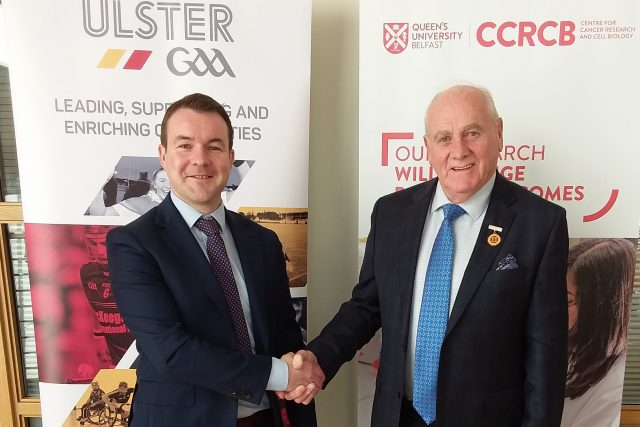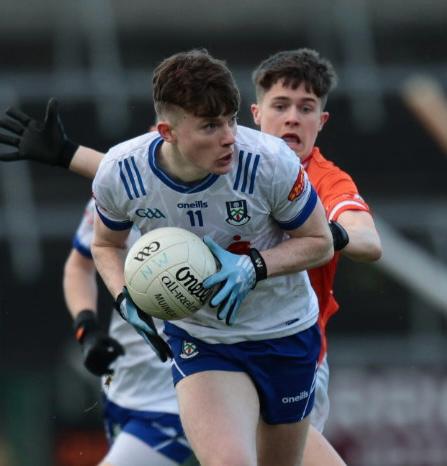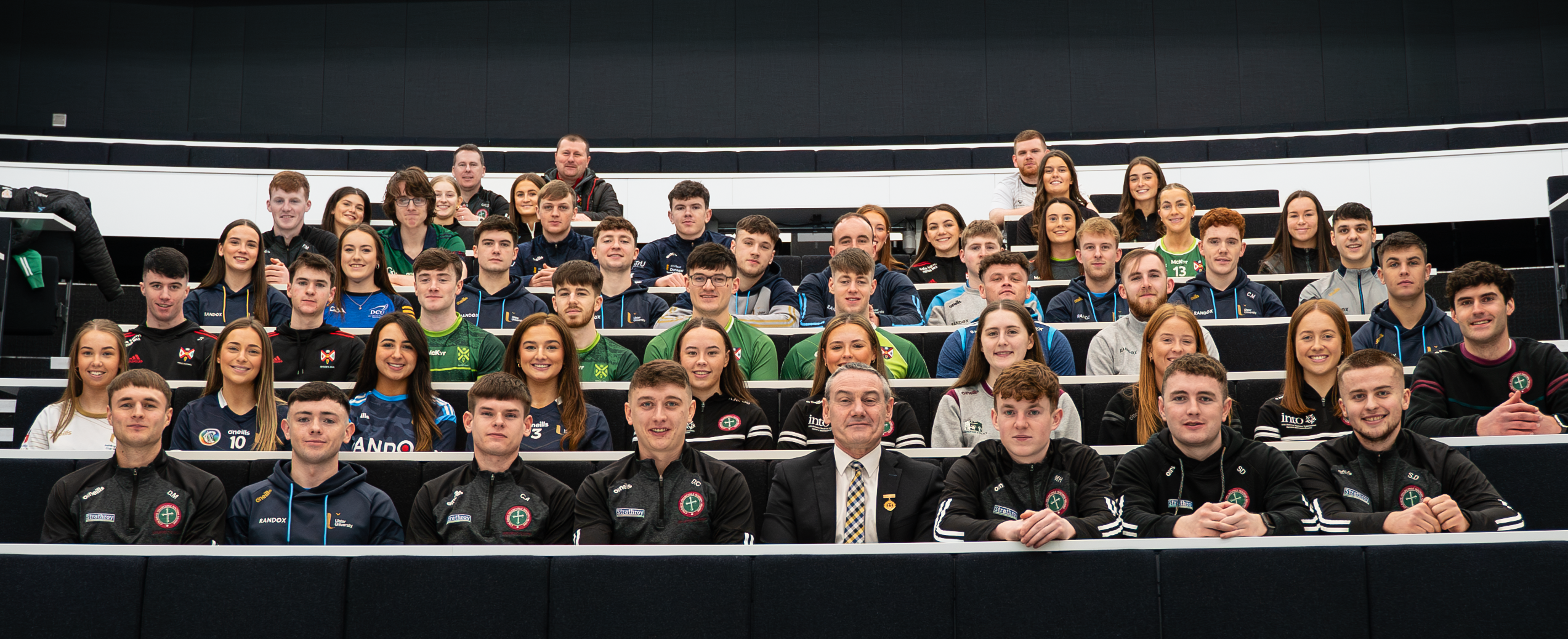Ulster GAA supporting Prostate Cancer Research

Ulster GAA are delighted to be “supporting prostate cancer research” with the Centre for Cancer Research and Cell Biology (CCRCB) at Queen’s University Belfast.
Speaking at the launch of the partnership Ulster GAA President, Oliver Galligan, said: “I am delighted to choose prostate cancer research as Ulster GAA’s charitable cause for 2019. The reach of the GAA family will help to create greater awareness of the disease and help with early detection, while funds raised will go directly to world-class research being undertaken by Queen’s University Belfast.”
Dr Aidan Cole from CCRCB at Queen’s University said:
“The Prostate Cancer Research Team at Queen’s is delighted to form this strategic partnership with the Ulster Council GAA to improve education, diagnosis and management of men diagnosed with prostate cancer in our communities. We are proud of our strong links with the GAA community and endeavour to provide our patients with the best treatments available and lead in clinical trials that can transform the treatment of prostate cancer in the future.”
Ulster GAA will be “Supporting Prostate Cancer Research” at the Ulster Championships in 2019, and throughout 2019-2020.

Prostate Cancer Brief Facts
Over 4,500 men in Ireland are diagnosed with prostate cancer every year. In the UK, prostate cancer deaths have exceeded breast cancer deaths for the first time, with over 11,000 men per year dying of aggressive forms of prostate cancer. At present, 1 in 8 men will develop prostate cancer in their lifetime, with an increased risk for those aged 50 or more (the majority of cases are diagnosed in men aged 65+) or with a family history of prostate cancer.
How does prostate cancer present?
Prostate cancer is often diagnosed when men present to their GP with urinary symptoms, such as getting up more frequently at night to urinate, having an inability to empty their bladder completely or going to the toilet more frequently, throughout the day. It is important to note that whilst these symptoms can prompt investigations, more often than not, they indicate a benignly enlarged prostate. Many men are diagnosed with prostate cancer following routine checks in the absence of symptoms, most commonly, a routine blood test called Prostate Specific Antigen (PSA).
How is it treated?
Patients with localised disease within the prostate have a number of curative options available to them including surgery, radiotherapy, brachytherapy (seed radiation) and, in some instances, active surveillance whereby the cancer is low risk but monitored closely for signs of change. For some men, prostate cancer can spread to the bones and other parts of the body, rendering the disease incurable. However, even at this stage a number of newer treatments enable men to live with the disease for many years beyond diagnosis. If you have concerns about yourself or a family member, consult with your GP for further advice.
Prostate Research at Queen’s University
The Prostate Clinical Research Team at QUB comprises of a team of Clinical Research and NHS Consultant Oncologists, coupled with expert scientific research from the Centre for Cancer Research and Cell Biology (CCRCB). The team’s ethos is to improve patient care through world-class clinical trials of new treatments.
The Prostate Clinical Research Team is internationally renowned and has led the way in innovative trials which has improved treatment for many men, increased survival rates and reduced the side effects from treatment. In addition to improving education for patients and healthcare workers, the team supervise research from medical students, scientists, physicists and clinical doctors to sustain a culture of ongoing excellence in prostate cancer research. The team are dedicated to ensuring that our patients and their families have the best treatments at the correct time and that survival rates continue to improve.
If your club would like to get involved in creating greater awareness of prostate cancer, or would like to support fundraising efforts, please contact Maura McMenamin on maura.mcmenamin.ulster@gaa.ie







